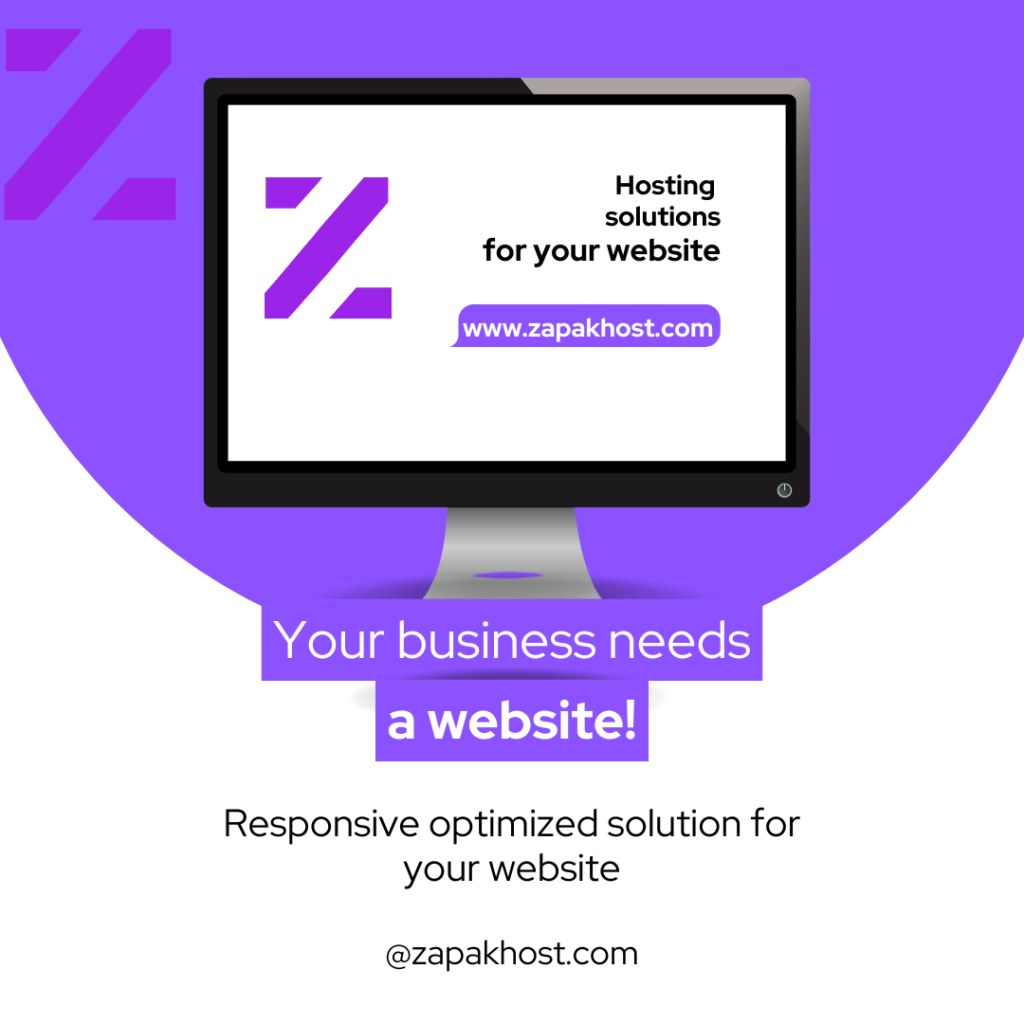
If you’ve decided to start your Business and you want to start your website , this article will help you understand what is website and why do we need website for our Business.
A website is a collection of related web pages that are typically accessed through the internet. Each web page is a document that can contain various types of content, including text, images, videos, and interactive elements. Websites are hosted on servers, and users access them using web browsers like Chrome, Firefox, or Safari by entering a domain name (such as www.example.com).

Key Components of a Website
- Domain Name: This is the address of the website on the internet (e.g., www.yourbusiness.com). It is what users type into their browser to access the site.
- Web Hosting: Websites are stored on servers maintained by web hosting providers. Hosting services make your website accessible on the internet.
- Web Pages: These are the individual documents that make up a website. Each page can be viewed separately and typically includes various types of content and links to other pages.
- Content: This includes all the text, images, videos, and other media that appear on the web pages. The content provides information and engages visitors.
- Design and Layout: The visual presentation of a website is crucial for user experience. It includes the layout, color schemes, typography, and overall style of the site.
- Navigation: This refers to the system that allows users to move through the website. It usually includes menus, buttons, and links that help users find specific pages or sections.
- Functionality: Websites can have various interactive features, such as forms, search bars, and e-commerce functions, depending on their purpose.
- Backend and Frontend:
- Frontend: This is what users see and interact with on their screens. It includes everything from text and images to buttons and navigation menus.
- Backend: This is the behind-the-scenes part of the website, which includes the server, database, and application logic. It manages the functionality and data processing of the site.
Types of Websites
- Personal Websites: Used by individuals to showcase personal interests, hobbies, or professional portfolios.
- Business Websites: Designed for companies to promote their products or services, provide information, and engage with customers.
- E-Commerce Websites: Online stores where users can browse products, make purchases, and process transactions.
- Blog Websites: Focused on publishing articles or posts on various topics, often updated regularly.
- Educational Websites: Provide learning resources, courses, and information on educational topics.
- Non-Profit Websites: Created for organizations that aim to raise awareness, provide information, and solicit donations for their causes.
Why Every Business Needs a Website: Unlocking Your Potential
If you’ve decided to start your Business and you want to start your website , this article will help you understand why do we need website for our Business.In today’s fast-paced digital world, having a robust online presence is more important than ever. Whether you’re a small local shop or a large corporation, a website is an essential tool that can help you connect with your customers, showcase your offerings, and grow your business. Here’s why every business should invest in a website.
In today’s fast-paced digital world, having a strong online presence is no longer just an option—it’s a necessity. A well-designed website isn’t just a digital business card; it’s a powerful tool that can drive growth, build trust, and enhance your brand. Here’s why every business, regardless of size or industry, needs a website.
1. Credibility and Professionalism
In the digital age, consumers expect businesses to have an online presence. A website lends credibility and professionalism to your business. It signals to potential customers that you are serious and trustworthy. Without a website, your business may seem less established or even unprofessional, which can deter potential customers and clients.
2. 24/7 Availability
One of the biggest advantages of having a website is that it’s always open. Unlike a physical store with restricted hours, your website is accessible 24/7, allowing customers to learn about your products or services, make purchases, and contact you at any time. This constant availability can significantly boost your sales and customer engagement.
3. Reach a Broader Audience
A website expands your reach beyond your local area. With a well-optimized site, your business can attract customers from all over the world. This broader reach opens up new opportunities and markets that would be impossible to access with a physical presence alone.
4. Effective Marketing and SEO
A website is a critical component of your marketing strategy. It allows you to implement search engine optimization (SEO) techniques to improve your visibility on search engines like Google. By ranking higher in search results, you can attract more organic traffic to your site. Additionally, a website enables you to run digital marketing campaigns, including email marketing, content marketing, and social media advertising.
5. Showcase Your Products and Services
Your website serves as a platform to showcase your products or services in detail. You can include descriptions, images, pricing, and even customer reviews. This comprehensive presentation helps potential customers make informed decisions and can significantly impact their buying choices.
6. Build and Maintain Customer Relationships
Your website can facilitate better communication with your customers. Through contact forms, live chat, and customer support pages, you can address inquiries, offer assistance, and gather feedback. Additionally, integrating a blog or news section allows you to share updates, industry insights, and valuable content, helping to build and maintain customer relationships.
7. Gain Competitive Advantage
In almost every industry, having a website is now the norm. If your competitors have websites and you don’t, you risk falling behind. A professional, user-friendly website can give you a competitive edge, helping you stand out and attract customers who might otherwise choose your competitors.
8. Track and Analyze Performance
Websites offer valuable data and insights through analytics tools. By tracking visitor behavior, traffic sources, and other metrics, you can gain a deeper understanding of your audience and how they interact with your site. This information is crucial for refining your marketing strategies, improving user experience, and making informed business decisions.
9. Showcase Your Brand Identity
Your website is an extension of your brand. It’s an opportunity to communicate your brand’s identity, values, and personality. Through design elements, content, and user experience, your website reflects who you are and what you stand for, helping to create a strong, recognizable brand.
10. Cost-Effective Marketing
Compared to traditional advertising methods, a website is a cost-effective way to promote your business. It can reach a wide audience at a relatively low cost and offers long-term benefits. With a well-optimized site, you can achieve a higher return on investment compared to more transient forms of advertising.
Conclusion
In an increasingly digital world, having a website is essential for business success. It provides credibility, accessibility, and a powerful marketing platform while helping you connect with a global audience. Investing in a professional website is not just a step towards growth—it’s a fundamental aspect of running a modern business. If you haven’t yet embraced the digital age, now is the time to get started and unlock the full potential of your business.

Leave a Reply